Webinar on demand: Sustainable Pig Farming
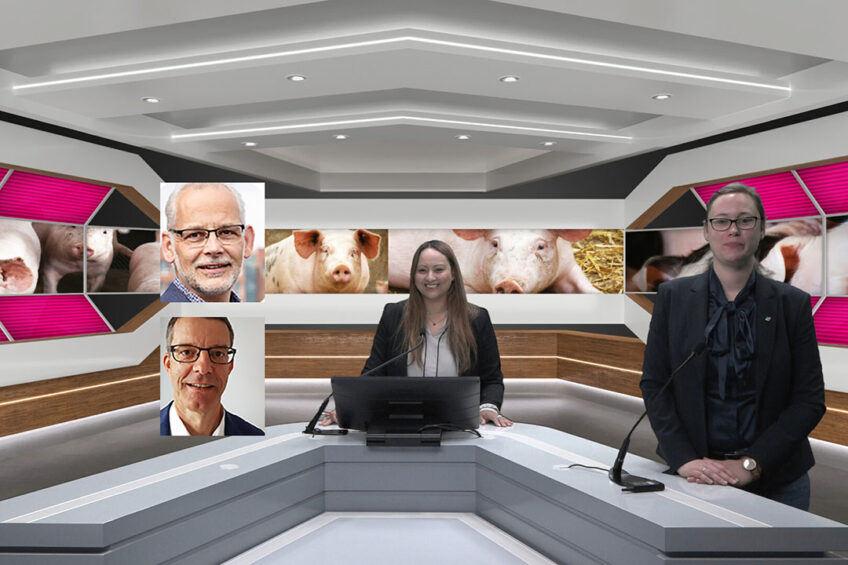
Pig Progress recently hosted a webinar on the topic Sustainable Pig Farming, held in cooperation with Phileo by Lesaffre and CJ Europe. The webinar on 16 June 2022, explored ways in which sustainability can be achieved on the pig farm as well as strategies that will have a positive impact on animal welfare and on the bottom line. If you have missed it, you can watch it on demand.
Robert Hoste, senior pig production economist at Wageningen University & Research started the webinar and in his presentation on ’Sustainability in pig production requires an integrated approach’ said that this topic is multi-faceted and resilient animals are a major advantage. In terms of efficiency – there is a lot of potential and efficiency development does not happen overnight but takes time.
He talked about the 4P concept – People, Planet, Profit and Pigs – this concept centers around how these points impact the pig production to achieve more sustainable pig production. For example – the People component is important because he said “we need concerned employees, not working machines. Managers should be skilled and have tools to be able to manage.”
In the Pig part, he went on mentioned aspects like animal health, welfare and performance stating that “Animal welfare and biosecurity is important but should be done in a proper way.” With the Planet component he touched on emissions and environmental footprint, he added that for feed production we make use of the soil and so it is vital that we take care of the quality of the soil. With the Profit aspect he stated that the main take-away here is to balance challenges as well as opportunities.
Watch the webinar on demand here: Sustainable Pig Farming
Feed and feed costs
Second up was Niels Poulsen, CEE swine technical manager at Phileo Lesaffre who discussed, ’Sustainable pig farming: Optimise feed efficiency to improve profits’ in his presentation he stated that when we speak about feed and feed costs, around 70% of the production cost of the pig is related to feed. He added, “when we look at the different stages of production, in growing-finishing stage that is where we will consume 70-75% of the total feed needed in order to produce this pig, if we look at it from the very beginning of production. It is a good focus point to work on feed efficiency.”
He further said that as a solution to improve sustainability, in terms of feed efficiency Actisaf, a probiotic to be fed on a daily basis, can improve livestock health and efficiency. With Actisaf supplementation and better digestion in animals there were lower emissions seen in trials. Some advantages of Actisaf include, enhanced microbiota in pigs, homogenous animals, reduction in ammonia, better feed conversation rate and farm profits.
Pigs and greenhouse gases
Finally, Dr Diana Siebert, technical marketing manager at CJ Europe presented on ’How amino acids contribute to a climate-neutral pig farming’. She talked about pigs and greenhouse gases and said that in animal rearing with regards to GHG 2 points need to be considered – one is feed production and the second emissions, with nitrogen being strongly related to the environmental impact of livestock. “So if you handle nitrogen (N) correctly you can have a big impact on the climate.”
She added that the main source of nitrogen for animals is dietary crude protein, if the dietary crude protein (CP) content is reduced it will reduce the environmental impact, as an example, 1% of CP reduction leads to about 8-10% N-reduction. What is vital, is when reducing the CP level, keeping the performance of the animal high is part of the goal, when doing so we are increasing the efficiency of the nitrogen and this is possible with usage of feed grade amino acids (AA). “When we are supplementing AA it’s possible to not compromise the animals’ performance and therefore improving the animals’ nitrogen efficiency” Siebert stated. And as part of this strategy, animal health should always be top of mind she concluded.
Join 18,000+ subscribers
Subscribe to our newsletter to stay updated about all the need-to-know content in the pigsector, three times a week. Beheer
Beheer

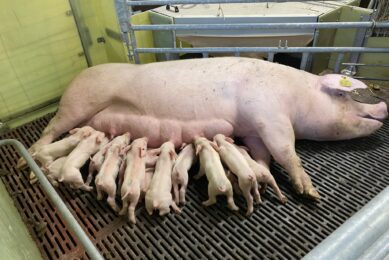
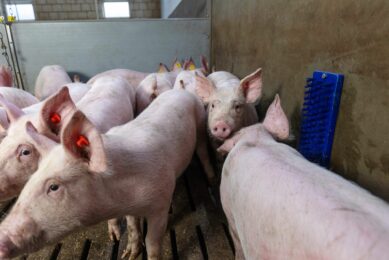
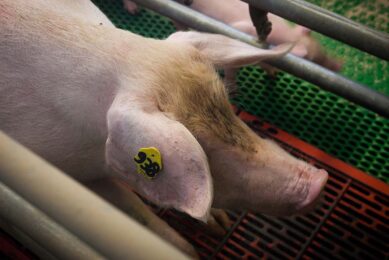
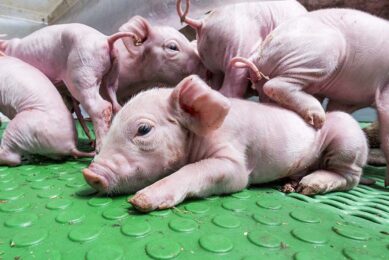




 WP Admin
WP Admin  Bewerk bericht
Bewerk bericht